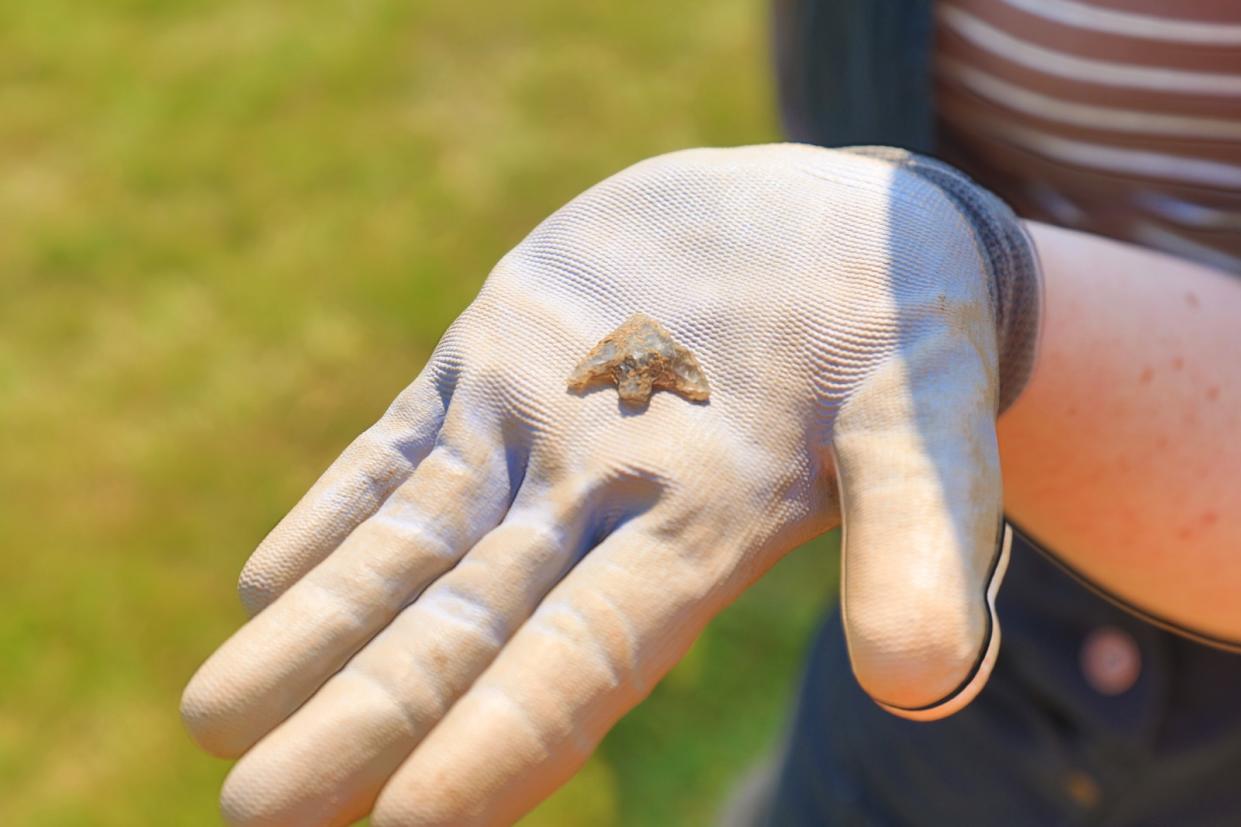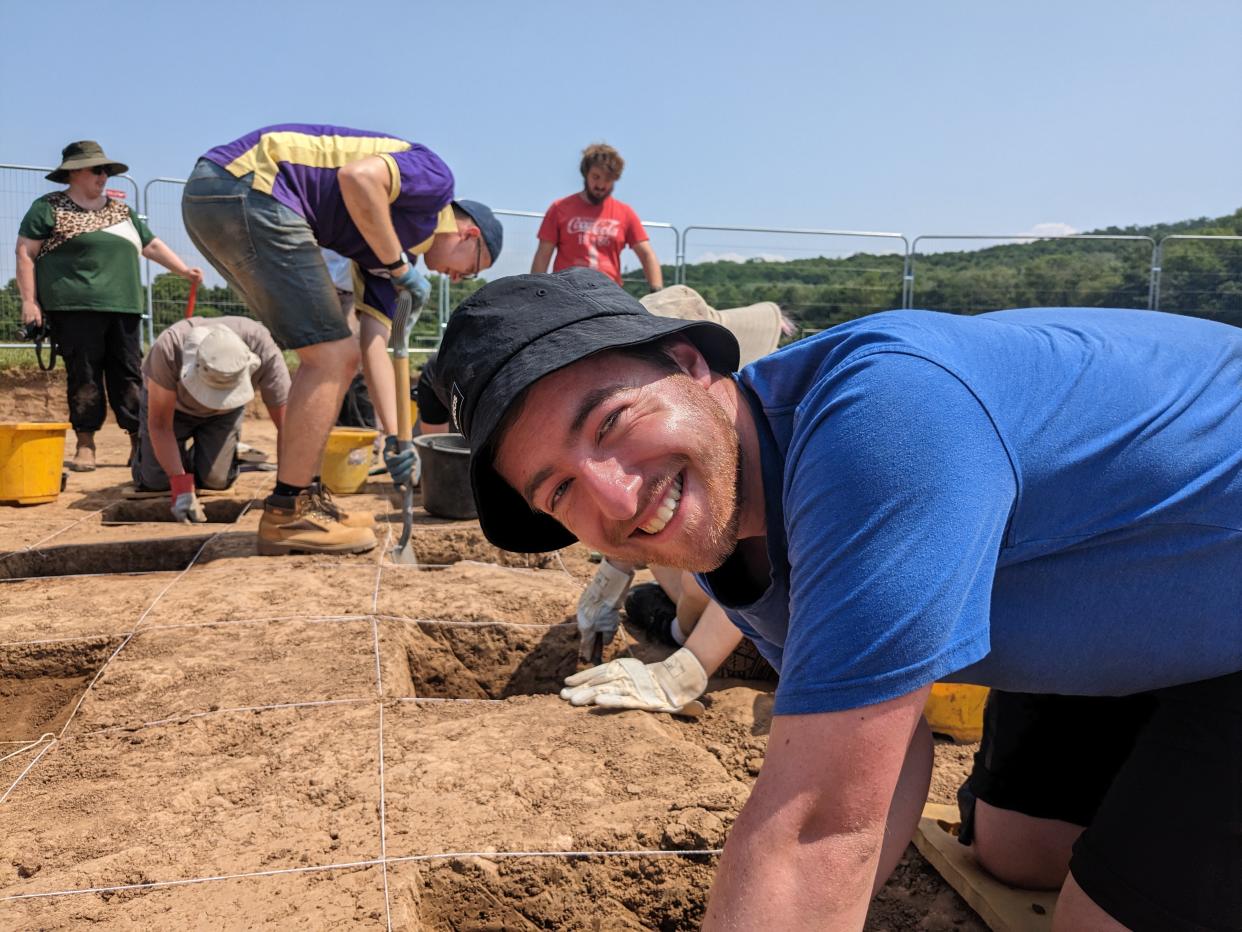Oldest house in Cardiff excavated under city park
A dig to unearth what is thought to be the earliest house found in Cardiff has resumed.
The roundhouse was first discovered at Trelai Park, a short distance from the city centre, last year.
Archaeologists are now excavating the “remarkably well-preserved” floor, which has remained beneath what is now playing fields for around 3,500 years.
The area where it was found is half-a-mile from Caerau Hillfort, a heritage site of national significance, and 200 metres from the already excavated Ely Roman Villa that was uncovered around a century ago.
Experts had hoped the structure would provide a missing link between the late Iron Age and early Roman period, showing what happened to people once they had moved on from the hillfort.

But the discovery of a clay pot confirmed the site was much older than first believed, and was most likely built in the Bronze Age around 1500 BC.
Caerau and Ely Rediscovering (CAER) Heritage Project co-director Dr Oliver Davis said: “We’re opening up further what we believe could be the earliest house discovered in Cardiff.
“The dig last year showed us that the floor of the roundhouse is remarkably well-preserved, giving us the chance to examine the surface that people were walking on 3,500 years ago.
“This is a very rare opportunity for archaeologists. We are hopeful our excavations will give us further clues and insights into the origins of the Welsh capital.
“We’re so grateful to be working with the community to uncover this wonderful Bronze Age story that has lain hidden for so long.”

This latest dig is being run by CAER, Cardiff University and Action in Caerau and Ely (Ace), and involves 100 volunteers and 200 pupils from nearby schools.
Michelle Powell of Ace said the dig involves “people of all ages, providing opportunities to develop new skills, bringing local people together to discover our incredible heritage”.
Among those taking part is father-of-five Scott Bees, 34, a postman turned ancient history student who decided to pursue a degree after joining a dig last year.
Year seven and eight pupils from the nearby Cardiff West Community High School are also taking part.
Work will be ongoing at the site until July 7, with an open day taking place this Saturday from 10am until 2pm.
Findings from the excavation will be showcased at an exhibition at the CAER Heritage Centre in December.


